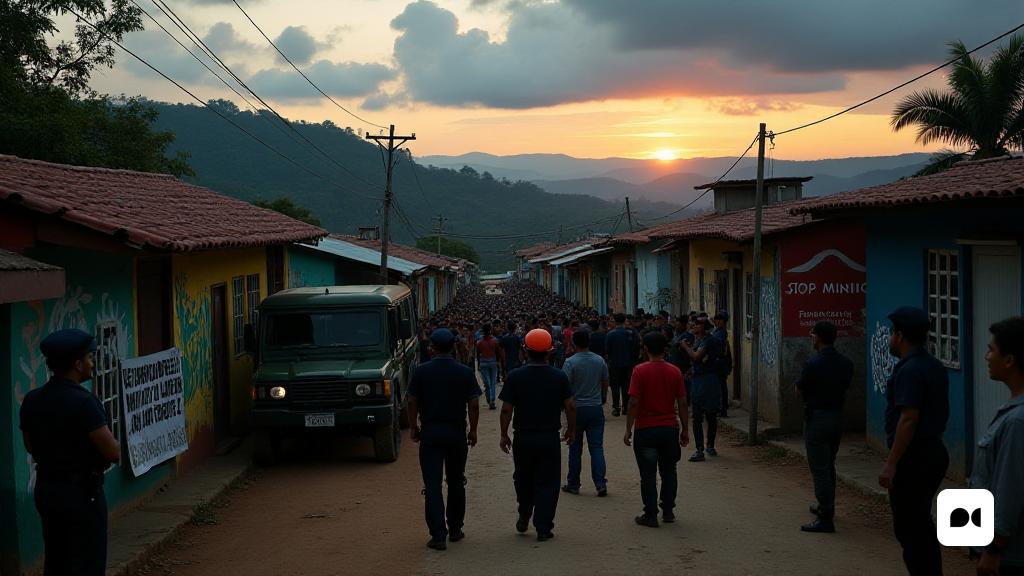Arrests that mark a community
On the morning of January 11, 2023, the community of Santa Marta was shaken by the arrest of five prominent environmental activists: Antonio Pacheco, Saúl Rivas, Alejandro Laínez, Pedro Riva and Miguel Gámez. Its frontal opposition to mining initiatives has generated a climate of tension and fear, now amplified by its imminent court.
A judgment with shadow of manipulation
After rejecting a trial last February, activists confronted a new waiting period with the High Court scheduled for May. Community members fear that this delay will be a deliberate tactic to destabilize and intimidate the opposition.
A context of criminalization
Alfredo Leiva, a resident of Santa Marta and part of the Social Economic Development Association ‘Santa Marta’ (ADES), claims that the prosecution has not presented solid evidence against the detainees. He also believes that the state has decided to use its institution to silence critical voices at a time when mining is promoted as a pillar of economic growth.
A story of endurance
The fight against metal mining began at the beginning of the 21st century, culminating in the approval of the first law that banned this practice in 2017. However, with the rise of Nayib Bukele in power, the Salvador signed an international agreement to promote ‘sustainable mining’, a change that coincided with activist arrests.
A permanent exceptional regime
With three years of exception, the Salvador has seen an alarming increase in arbitrary arrests. According to recent reports, more than 85,000 people have been imprisoned, with a thousand deaths in state custody, a situation that has generated a climate of fear among the population.
Human Rights in danger
Verònica Reyna, of the Passionist Social Service (SSPAS), emphasizes that in this context, individual rights have been severely restricted. The arrest does not require evidence, and the living conditions in prisons are deplorable, with the loss of almost all rights.
Attacks on feminist voices
Since 2021, feminist organizations have been the subject of attacks and criminalization, such as Las Mélidas, which was persecuted by a literacy project. Amaranta Portillo, president of the organization, denounces that the state’s goal is to dismantle the voices that question human rights violations.
Digital harassment: a new form of violence
A recent report reveals that digital harassment has become one of the most common ways of violence against women in El Salvador. This type of misogynistic aggression, often seeks to silence female voices and perpetuate a climate of fear.
An uncertain future
With the approval of the new General Mining Law, which grants the state the monopoly on natural resources, the struggle for environmental defense and human rights is presented as an increasingly complex challenge. The Santa Marta community, despite the adversities, continues to fight for its dignity and a fairer future.

